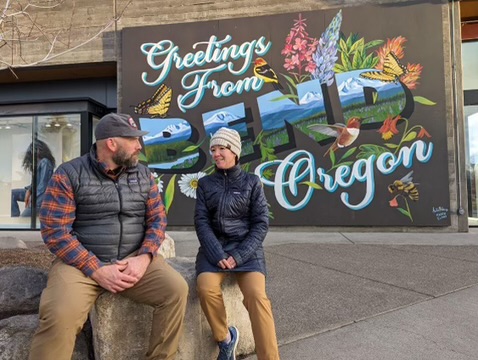2024 Brickyard Roadtrip Series: Rural Edition in the Northwest
NationalBrian Von Herbulis | April 02, 2024
On a cold and damp morning in late January 2024, I set out on the road with a colleague from +More Perfect Union to connect with citizens living in rural communities in Southwest Idaho, Eastern Oregon, and Southern Washington. Our concept was simple. We would drive to 6 targeted communities and converse with people we encountered in small towns and rural communities. We would approach conversations with curiosity and let them tell us what is on their minds.
The purpose of this road trip was to:
- Give voice to and connect with the citizens of rural communities who may feel disconnected, isolated, or misunderstood by the rest of the nation
- Build trust between people in rural communities, MPU leaders, and the organization as a whole (nonpartisan or neutral party)
- Create energy and movement in rural communities in the Western United States.
- Build a leadership pipeline for Rural Brickyards
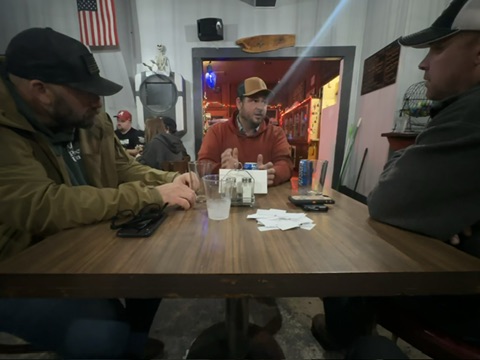
The first stop on our trip was the rapidly growing town of Middleton, ID. We stopped in Middleton at a local cafe to grab breakfast and get a sense of the community and what transpired in this once-small town that has seen tremendous growth in the last five years. The atmosphere was as expected: some older people, 65+, were having an early breakfast, and a few business meetings appeared to be taking place. We were on the front end of the morning rush, so we took time to engage with our waitress before the pending rush overcame her. Our waitress had lived there her whole life. She loved her job and the patrons she served. She expressed that the town had grown, but she was happy.
With a full stomach and a morning coffee buzz, we paid our check and headed for the truck. In the parking lot, we spotted an older gentleman walking his dog. He looked a bit tattered and interested. I couldn’t resist. Everyone has a story, and I wanted to hear some of his. I interrupted his morning stroll and asked his name and if he was from the area. He told me his name was Rodney, and he had ground up in Payette, ID, a farming community on the border of Idaho and Oregon. He said he had worked as a farmhand his entire life and had seen tremendous change in the country and this area over his lifetime. Now, at 82, he could no longer work. He lived in an assisted living facility and had moved to the area to be closer to his daughter. I asked him what he thought of the state of our country, and he snickers and says it is terrible. He went on to talk about how expensive everything was, and the cost of living was so high. He didn’t understand how people could afford to live these days and expressed, “There is too much money at the top. They are just out to get rich.” We talked up the pending election, and he said he always votes. With that, I followed up by asking if he thought we should limit the power of those in Congress by instituting term limits, and he emphatically said, “Yes!” He said, “We must reign in the money and limit lobbying.” By this point, I had taken enough of his time. I thanked him, and we parted ways to return to the road.
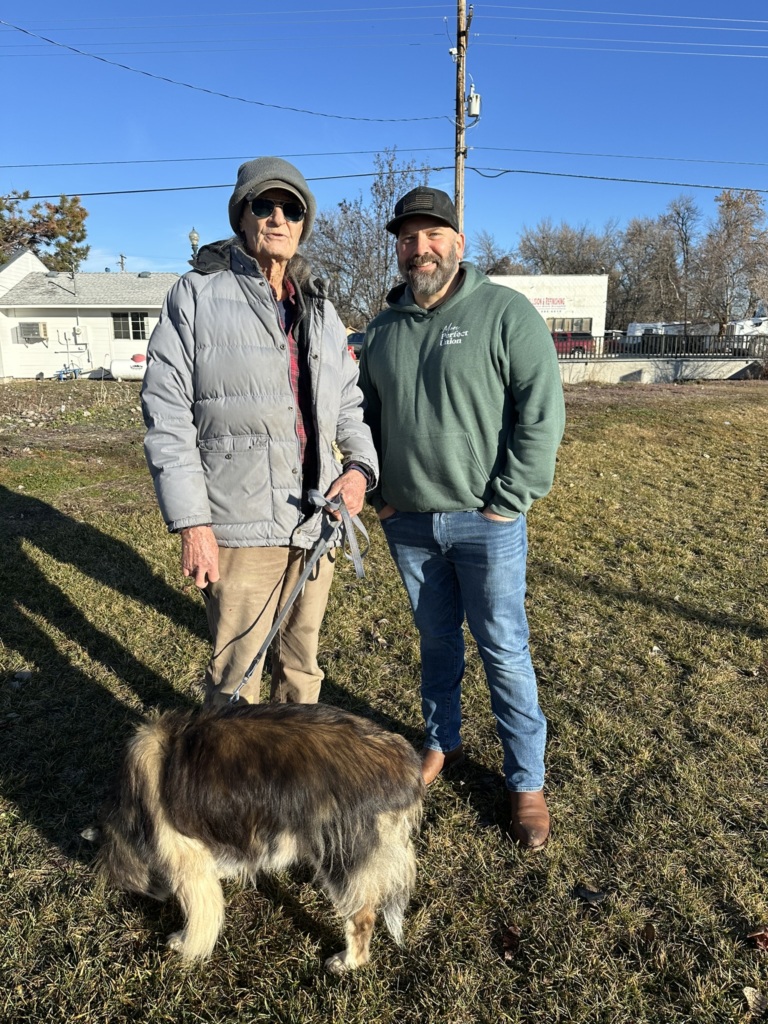
Our next stop would be Fruitland, ID. We stopped in a local coffee and sandwich shop, hoping to find more local patrons willing to converse. The staff was friendly and young. One of them said she had lived there all of her life but had seen her small town change with the recent influx of people to her town and southwest Idaho. She said she no longer felt safe in her small rural town, but it was all she had known, and she planned to stay.
A few minutes later, she introduced us to a patron named Kip and his dog, who she thought would enjoy conversing with us. He was a Navy veteran. He was a proud submariner in the Navy and willingly shared pictures on his phone of fond memories he had from his time in service. After leaving the Navy, he used to work for Idaho Power, but after a bout with cancer, he was now retired and spent much of his time hunting, fishing, and enjoying life in this rural community. While enjoying a cup of coffee, we talked about the country. Kip talked emphatically about the border crisis, the current administration, the national debt, and the economy. He favored limiting the terms of those serving in Congress. He also thought there should be a national voting holiday, and you had to show your valid identification. He expressed that he had lost faith in our national institutions because corruption was “deep and wide.” However, he remained optimistic about our country’s future because he believed people could turn things around.
After our lengthy conversation with Kip, we were sufficiently amped up on caffeine, so we set out for Orgeon with the intent of stopping in Baker City.
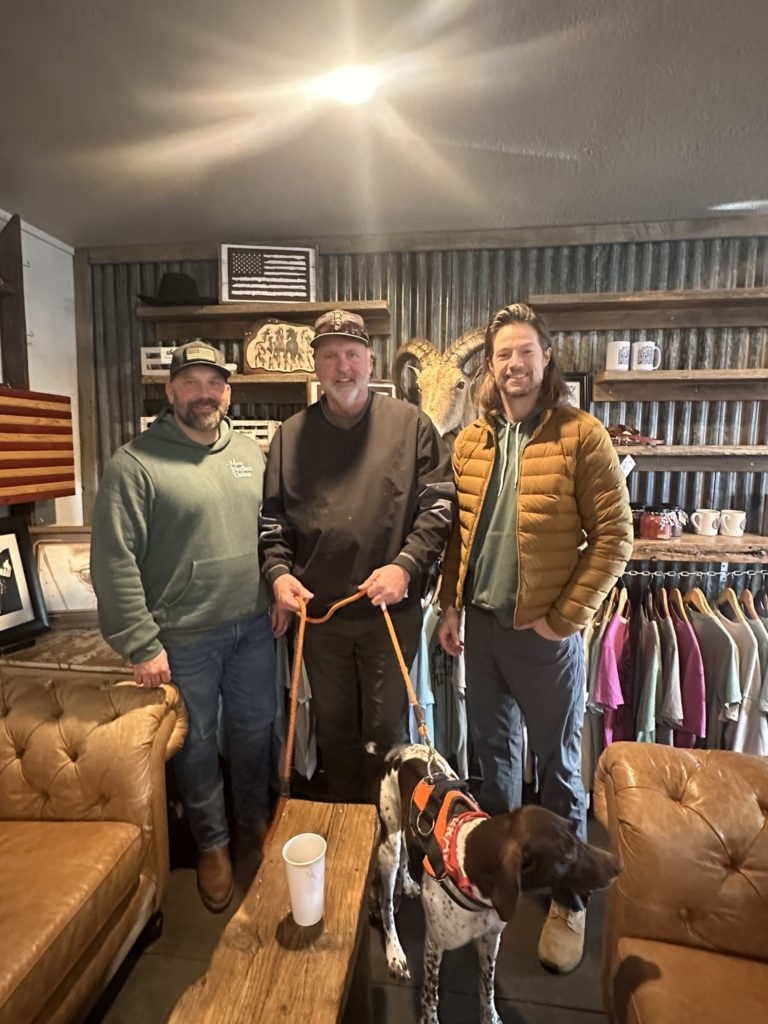
Baker City, OR, is a small town of about 10,000 people in eastern Oregon. Its origin dates back to pre-Civil War times. With the railroad’s arrival in 1884, Baker City was once the largest city between Salt Lake City, UT, and Portland, OR. After walking down the main street and talking with a few shop owners and patrons, I learned that there was a severe drug problem and the city was losing services. The local hospital had recently shut down its labor and delivery ward. Women had to travel to Pendleton, OR, or Idaho to deliver their children. After some interesting conversations, we decided it was time for lunch.
We went to the local bar and grill, hoping for more interesting conversations and good food. We walked in and took a spot near the end of the bar. After placing our order, I conversed with the guy next to me. His name was Bruce, and he was 69 years old. Bruce was the local shuffleboard champion. He had been a long-haul trucker for 35 years. He said it was the only job he could get after 13 months in jail and after being rejected by the military. After getting to know one another, we started to talk about the country. Bruce said we were spending too much money overseas and thought we needed more problems to address at home. He thought we should be doing a better job taking care of our veterans and putting money towards fixing the homeless crisis. Bruce said his concerns for the country were the cost of living, jobs, low salaries, and wages. After lunch, I thanked Bruce for his time and returned to the road.
We still had a few hours of driving to our next stop in Southern Washington. As we made our way north, through a mountain pass, the clouds closed in around us and we twisted and turned along the windy road. With severely limited visibility, we meandered along, cleared the fog, and made it to WA.
After a good dinner and a restful evening, we set out for Touchet, WA, a small rural town of about 420 people. There, we would be linking up with a veteran named Andy. Andy had agreed to talk about life in Touchet and the surrounding rural communities. We met Andy at his home. It was a lovely home on a hill in a country setting. Andy had some land and some livestock visible as we pulled up the driveway. Andy had been retired from the military for a few years and was now raising his family in Touchet. Andy and his wife had grown up in WA and were happy to return to their home state. Not wanting to take too much of Andy’s time, we quickly talked about the country and life in rural WA. Andy was a true patriot who expressed that America represented opportunity. Andy believed that if you work hard, you can achieve your goals and live a purposeful life.
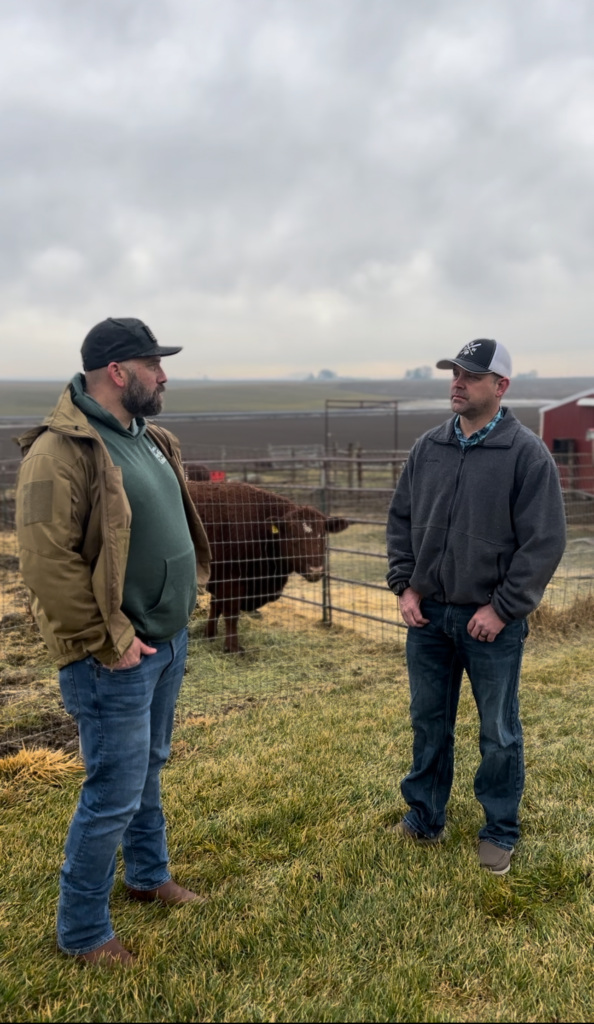
Andy then asked if we wanted to meet some local cattle ranchers. How could we resist? We loaded up on Andy’s truck and set out for Starbuck, WA, a town of around 100 people. We entered the local fishing bait shop and grill to find a few gentlemen in cowboy hats and arms crossed waiting for us. Andy introduced us to Montie and Tony. Both were lifelong cattle ranchers. We all grabbed some coffee and ordered some cheeseburgers from the grill. After we settled back at the table, we started right in on the country’s status. I asked them about their hopes for the country, and they expressed they wanted a new president and better economic conditions. They went on to explain that for the first time in about 10 years, the cost of beef was up and could have been profitable, but all of the other items like feed and diesel fuel had gone up so much in the last three years that they would not be making a profit. They expressed that making a living as cattle ranchers was more complex and challenging and that if the economy didn’t change, they and their ranching friends would have to find a new profession. This just wasn’t going to be sustainable if things didn’t change. Montie and Tony also complained about politicians in WA and their lack of knowledge and empathy for those who live in eastern Washington and choose to live a simple life. They felt disenfranchised by the politicians in the big city and thought they weren’t represented.
We finished our coffee and cheeseburgers, thanked the shop owners, and went outside to say our thank yous and goodbyes.
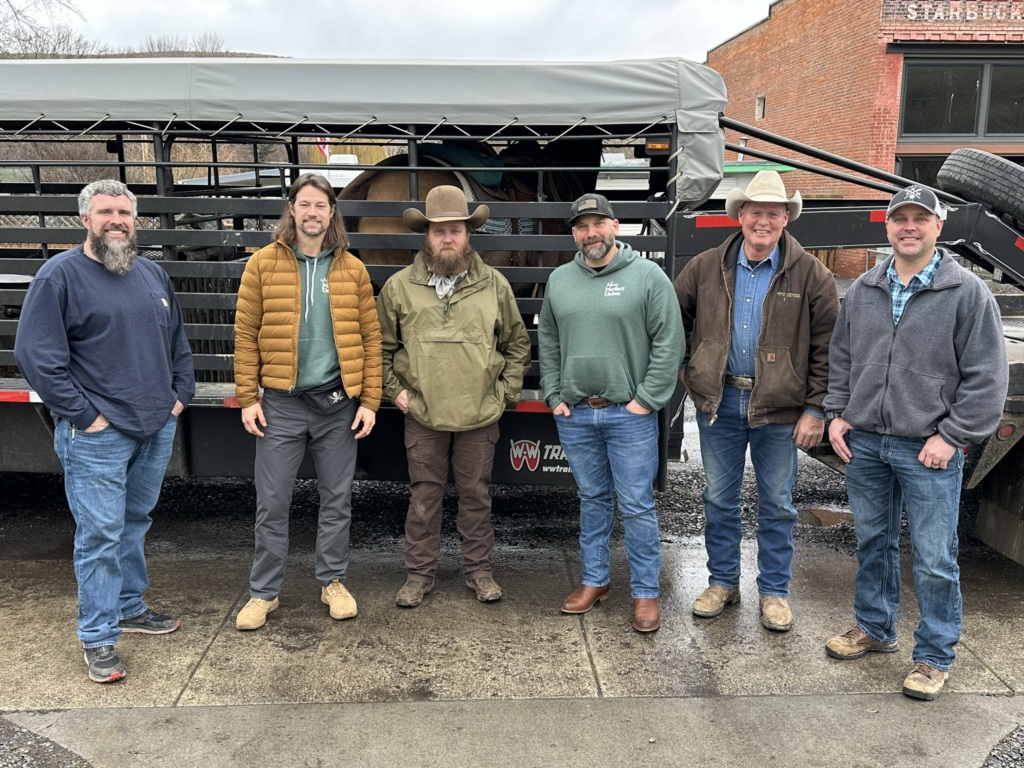
It was now time to cruise on down the road to get my colleague to the airport in Redmond, OR and then take advantage of my proximity to the hip mountain town of Bend, OR. While in Bend, I connected with some old friends and caught up on the latest happenings in our lives.
After a brief stint in Bend, I drove back towards Boise, ID. The 5-hour drive took me through rural eastern Oregon. A few hours into the trip, I found myself in the rural town of Riley, OR. Riley appeared to be a cattle ranching and alfalfa farming community. Running low on diesel, I stopped to fill up and then went inside to grab a cup of coffee. While inside, I spoke with the two employees, Mark and Ronnie. I asked Mark and Ronnie what they thought of the state of our country today. Mark quickly replied that the United States today is in a state of confusion. He said too many people in power are looking out for themselves and getting rich, and he also said we need to find ways to limit the power of politicians. Ronnie agrees, and she stated that the local politicians try, but the significant decisions in their state are made in Salem and Portland. She said people in rural communities just get left behind.
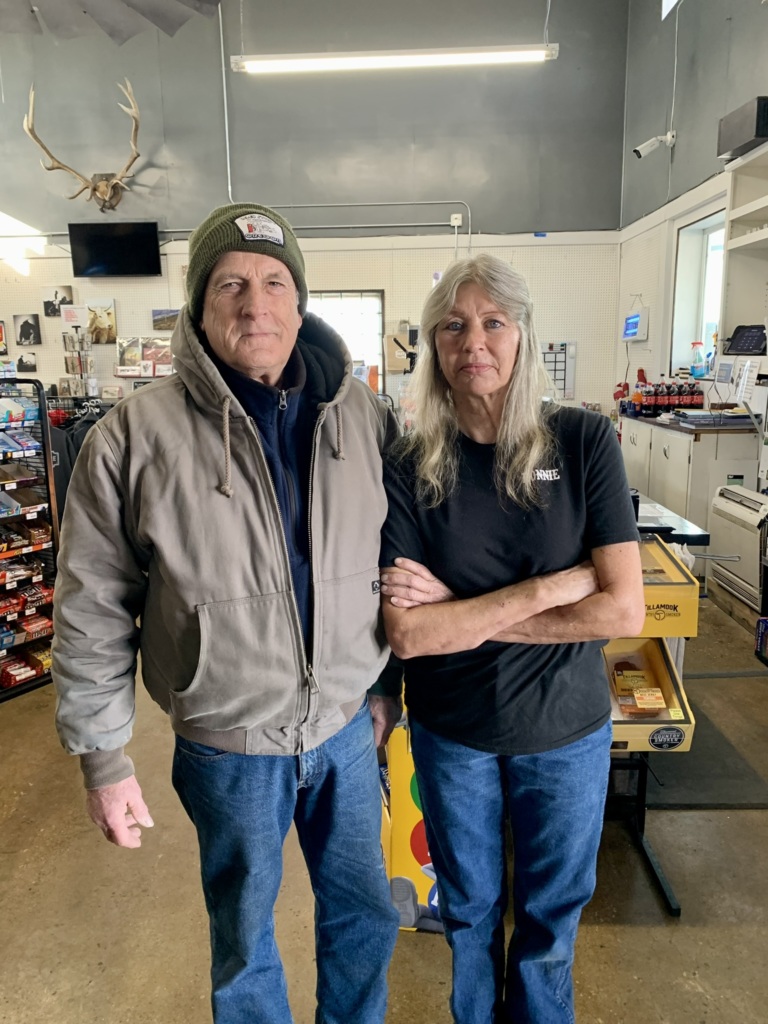
After those days on the road, and with a few hours to ponder all of the conversations, I came to the following conclusions about people in rural and small towns in these mountain states.
- They lack agency
- They suffer hardship from the current economic conditions
- They don’t trust our institutions will benefit them in any way
- They like living simple lives, but it’s a choice that comes with hardship
About 46 million people are living in rural communities in the United States. That equals about 14 percent of the total population. They want what most people in this country want: opportunity, freedom, and the means to support themselves and their families. Unfortunately, they have lost faith in our national institutions and want to see change. They, like all Americans, deserve +More.
